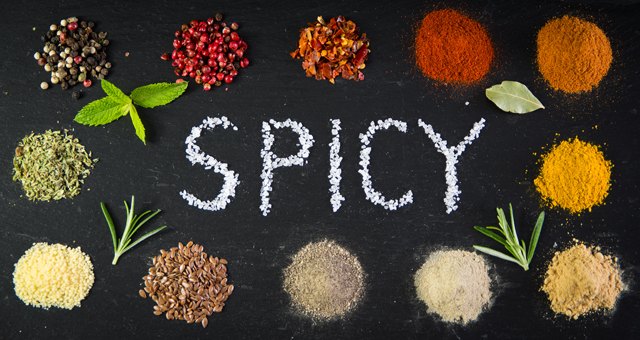Beating food addiction with the Spice Diet: Chef shares his story of success with healthy food alternatives
03/22/2018 / By Cassie B.

Do you need to lose some weight? According to the World Health Organization, the number of obese adults around the world exceeds 300 million, and 115 million of these people are suffering from problems related to their obesity. Perhaps you don’t quite fit the definition of obese, but you’ve noticed your waistline getting a little bigger in recent years and could benefit from dropping a few pounds. Either way, you’re facing an uphill battle that many people have tried and failed – some of them multiple times.
Whether they want to admit it or not, most people understand that eating less and moving more is an effective way to shed excess weight. It’s easier said than done, however, and it takes a tremendous amount of willpower to stand up to food cravings. In fact, for many people, giving in to that uncontrollable hankering for a brownie or chips proves their undoing when it comes to weight loss efforts.
How can this huge dieting roadblock be overcome? One Illinois chef has found the answer in the form of smart eating choices that address specific cravings. Chef Judson Todd Allen lost 160 pounds simply by satisfying his yearning for particular foods with healthier alternatives. After spending 20 years packing on the pounds due to an addiction to sugary, fatty and salty foods, he found his health in a downward spiral and his self-hatred sky high. It was this same love of food, however, that ultimately led him to find a great solution that could work for many people.
We all know that carrots aren’t going to cut it when ice cream is calling your name, but his method is far more specific than that. Spices are used to strategic effect in order to stave off cravings for unhealthy foods.

Salty cravings
For example, he turns to citrus and vinegar to address cravings for salt. The American diet has become so replete with sodium-laden processed foods that people’s taste preferences have adapted to desire these foods strongly. Thankfully, research shows that once you’ve cut back on the sodium, you’ll prefer foods that don’t taste as salty over time.
According to Allen, the juice and zest of citrus fruits like oranges, limes and lemons can awaken your taste buds, and their fresh, acidic taste satisfies even the strongest urges to eat something salty. He also cites vinegar as an excellent choice for adding flavor to food and substituting for salt. In addition, research has shown that eating spicy foods – think chili, paprika, chipotle and cayenne – will trick your brain into craving less salt.
Sweet cravings
The highly addictive nature of sugar is fueling not only widespread global obesity but also the diabetes epidemic. Once you give into a sugar craving, you’ll find yourself eating more and more. To address this, Allen recommends adding cloves to your food. This warming spice has a sweet flavor, and it also regulates your blood sugar and soothes your stomach.
Another good choice is the Middle Eastern and Indian staple fenugreek. Its seeds call to mind the flavor of maple syrup, and it features in one very popular Indian herbal remedy for diabetes. It can be used in tea, yogurt, spice blends, and meat rubs.
Spices can also be used to control your appetite in general. Cinnamon is a great starting point because it can work equally well in savory and sweet dishes. Just a quarter of a teaspoon can be enough to boost your metabolism, and it’s easy to add it to your morning coffee or tea, soups, and sauces.
Time and time again, we are reminded of the power of a healthy diet. Eating healthy foods can reduce your risk of many of the diseases that are the biggest killers of our day. By arming yourself with the knowledge of how to address those inevitable food cravings without compromising your healthy eating plan, you’ll be better positioned to lose weight and keep it off.
Read Food.news for more daily coverage of food news.
Sources for this article include:
Submit a correction >>
Tagged Under:
addiction, chef, cinnamon, citrus, cravings, fenugreek, food cravings, Fresh, healthy food, ingredients, natural remedies, nutrition, slender, Spices, Vinegar, weight loss
This article may contain statements that reflect the opinion of the author





















